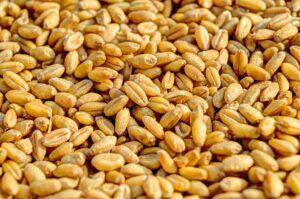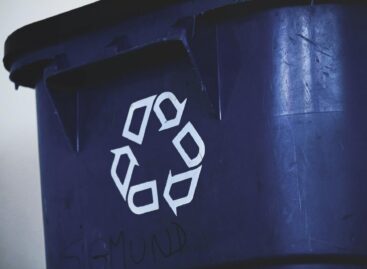Low-quality Ukrainian grain of dubious origin floods the market
The faulty decisions in Brussels have released a huge amount of poor quality Ukrainian grain of dubious origin to Ukraine’s neighbors, which makes it impossible for Hungarian farmers as well. While EU farmers have to produce according to strict regulations – with significant additional costs – the quality of incoming imports is highly questionable and may even be dangerous to health. NAK and MAGOSZ are asking for the help of green organizations that set serious requirements for EU producers: they should also lobby so that grain produced under the same conditions can only come to the EU. They also call on the decision-makers in Brussels: they compensate Hungarian farmers for the losses due to ill-considered measures.

(Photo: Pixabay)
A critical situation has developed on the Hungarian produce market due to thoughtless decisions in Brussels – draw attention to the Association of Hungarian Farmers’ and Farmers’ Cooperatives (MAGOSZ) and the National Chamber of Agricultural Industries (NAK). In the summer of 2022, the EU suspended the application of customs duties and duty-free quotas to goods arriving from Ukraine, so that Ukrainian grain could be forwarded to third countries. As a result, crops can freely flow into the EU, but the quantities that were originally to be transported to Africa and Western Europe did not go any further, but ended up on the Central European market, which was saturated with Ukrainian grain, sunflowers, and rapeseed. It is outrageous that while in the EU – with the introduction of the Green Deal – food must be produced in compliance with drastically strict standards, there are no expectations for imports. Ukrainian grain often does not comply with EU regulations and also poses a health risk, as many pesticides and other substances are used in Ukraine that have been on the banned list in the EU for decades, not to mention the fact that the cultivation of genetically modified plants is also permitted in Ukraine. .
We also ask for the help of international green organizations that set serious requirements for EU farmers: lobby so that grain produced under the same conditions as here can only come to the EU. In other words, either Ukrainian producers must also comply with the regulations, or they should not apply to EU farmers either.
Millions of tons of Ukrainian wheat and corn are already stored in our country
Hungarian wheat – despite being orders of magnitude better – is unsellable, compared to the time of harvest, its purchase price has fallen by 25%, that of sunflower by 35%, and the purchase of domestic grain and oilseeds has almost stopped. Due to the Ukrainian dumping, the prices on the world market have dropped significantly, which is not favorable for exports either, and the target markets of Hungarian wheat have also turned to the cheap but shoddy Ukrainian wheat. Even though Hungary, Poland, the Czech Republic, Slovakia, Romania and Bulgaria jointly asked the EU to act to curb imports at the agriculture minister’s council meeting at the end of January, no action was taken. The professional advocacy organizations call on the EU decision-makers to urgently take steps to stabilize the market, and also to comply with the plant protection and health regulations regarding the production of Ukrainian crops. Enhanced phytosanitary and food safety inspection of crops arriving in the EU from Ukraine, as well as the requirement of an ISCC certificate certifying compliance with sustainability requirements, are essential.
The low-quality wheat arriving from Ukraine – even via Romania or Slovakia – with phytosanitary, toxin and pesticide residue problems may have entered some mills
In many cases, Ukrainian imports are customs-cleared as “industrial wheat by-products” – thus not subject to strict controls – but many of these items are processed for food and feed production. Moreover, flour of Ukrainian origin also arrives with quality problems in various ways. The NAK and MAGOSZ strongly request that those items that were produced using pesticides that are not authorized in the EU be returned at the EU borders. Furthermore, it is justified to prove that only plant protection agents approved in the EU were used in the production of the goods. We expect the EU to apply the same strict requirements to imported agricultural and food industry products as we expect from EU producers, and we ask green organizations to stand up for the interests of the European population and those active in agriculture.
Related news
József Viski: Adaptation and competitiveness are key for the horticultural sector
🎧 Hallgasd a cikket: Lejátszás Szünet Folytatás Leállítás Nyelv: Auto…
Read more >In 2025, FruitVeB considered the support and professional coordination of the TÉSZs as its priority task
🎧 Hallgasd a cikket: Lejátszás Szünet Folytatás Leállítás Nyelv: Auto…
Read more >Related news
HELL CITY has arrived, led by Michele Morrone
🎧 Hallgasd a cikket: Lejátszás Szünet Folytatás Leállítás Nyelv: Auto…
Read more >








